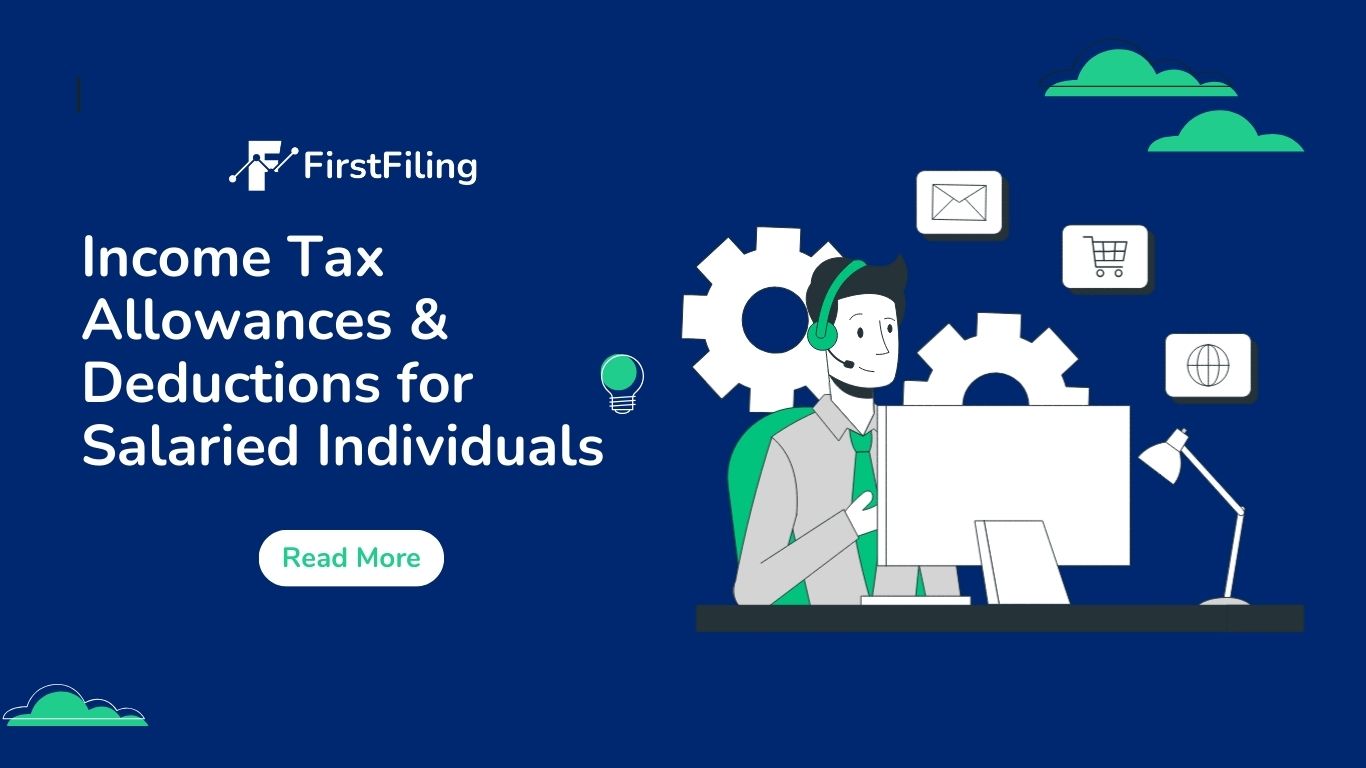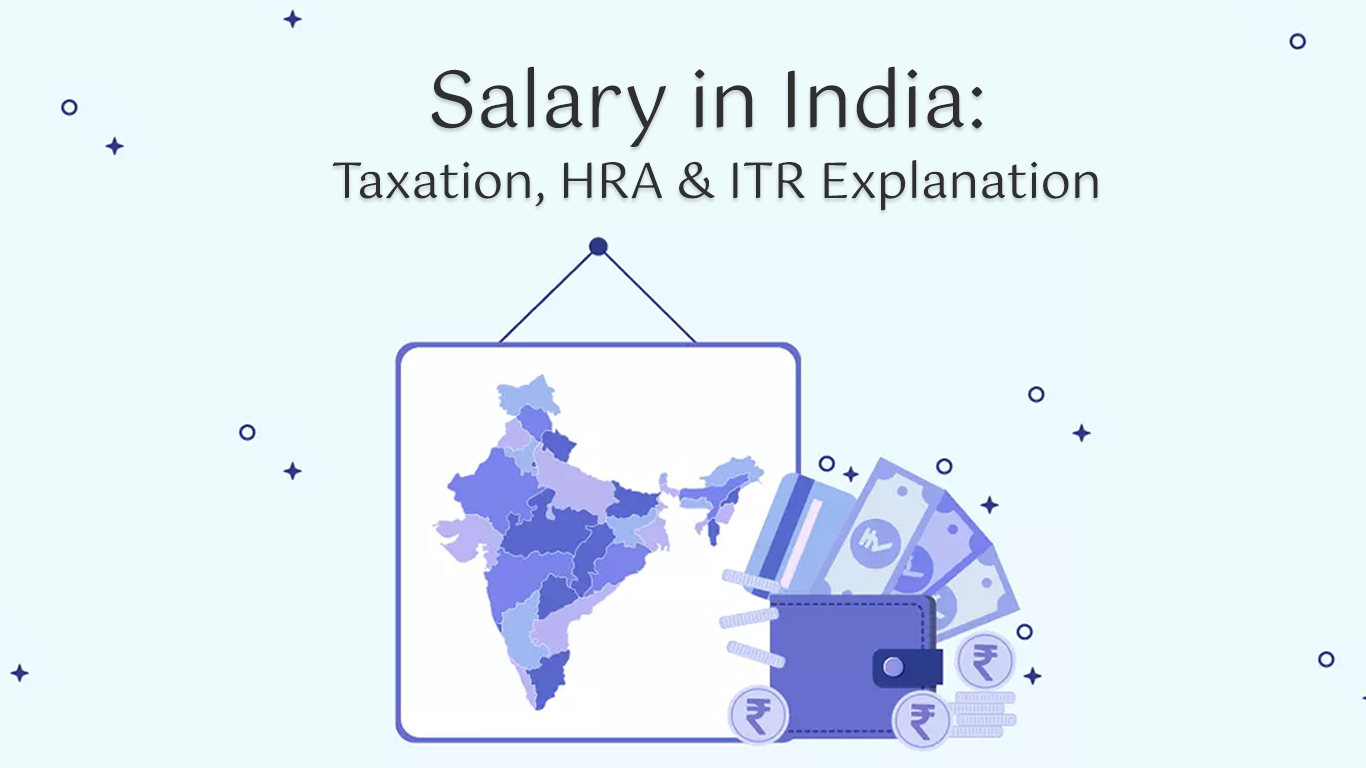
Income Tax Allowances and Deductions for Salaried Individuals
Salaried individuals make a sizeable contribution to the total tax collection of the nation. If you are a salaried individual, it is important to know about income tax allowances and deductions that can help reduce your tax liability! In this article, I will guide you through some of the major IT allowances and deductions that are available to you, as a salaried individual, under the Income Tax Act, 1961.
House Rent Allowance (HRA)
If you are a salaried individual living in a rented accommodation, you can get the benefit of House Rent Allowance or HRA. Such rent your pay could be partially or totally exempt from income tax. You will have to submit your rent receipts to your employer as proof to claim HRA, but if you were not able to do that, you can still claim the exemption while filing your income tax return.
So, please note that such rent would be taxable if you don’t live in a rented accommodation and continue to receive HRA; and if you do live in a rented accommodation, make sure to keep your rent receipts and any evidence of payment made towards rent.
The amount that you can claim as a deduction under HRA will be calculated as whichever is the least of the following:
- The total HRA received by an employee
- Actual rent paid less than 10% of basic salary + DA
- 50% of the salary for a metro city and 40% of the salary for a non-metro city
Leave Travel Allowance (LTC)
The Income Tax Act also provides for a Leave Travel Allowance (LTA) or Leave Travel Concessions (LTC) exemption to salaried employees. This exemption is restricted to the travel expenses they incur during the leaves.
LTA or LTC exemption doesn’t include all the costs incurred for the entire trip such as shopping, food expenses, entertainment and leisure, among others. As a salaried individual, you can claim LTA or LTC twice in a block of four years. If you don’t use this exemption within a block, you could carry the same to the next block.
The following restrictions apply to LTA:
- LTA or LTC only covers domestic travel and not international travel
- The mode of transport for such travel must be either railway, air travel, or public transport, going through the shortest route to the destination.
Standard Deduction
For Financial Year 2023-24, the limit of the standard deduction is ₹50,000 for both the old and the new regime. So, all the salaried taxpayers can now claim a standard deduction of ₹50,000 under the new tax regime as well.
Sections 80C, 80CCC, 80CCD(1)
For salaried individuals, the tax saving options include the investments computed under Section 80C. Under this section, an individual or HUF can claim a deduction of ₹1.5 lakh.
Income arising as a result of capital gains is not allowed for deductions under income tax for salaried individuals.
Here are some such investments that are eligible for an exemption under Section 80C, 80CCC, and 80CCD(1) up to a maximum of ₹1.5 lakh.
- Life insurance premium
- Employee Provident Fund (EPF)
- Equity Linked Savings Scheme (ELSS)
- Pension schemes
- Home loan principal payment
- Sukanya Samriddhi Yojana
- Contribution to PPF account
- Fixed Deposit
- National Savings Certificate (NSC)
- Post office scheme deposits
- National Pension Schemes (NPS)
- Health insurance schemes (section 80D)
Section 80D - Medical Expenditure & Insurance Premium
Section 80D of the Income Tax Act talks about a deduction that you can claim on medical expenses. And, you can also save tax on medical insurance premiums paid for yourself, your family, and dependent parents.
The following are the limits for Section 80D deduction:
- ₹25,000 for premiums paid for self or family, which includes spouse, dependent children, or parents.
- ₹50,000 for premiums paid for senior citizen parents.
- Moreover, health checkups up to ₹5,000 are also allowed and covered within the overall limit.
- Deduction of up to ₹50,000 for medical expenditure incurred by the senior citizen (60 years or above) or towards senior citizen parents, if they are not covered under any Mediclaim policy.
Senior citizens can claim a maximum deduction of ₹50,000 including the premium amount and medical expenditure. And, if the person has paid the medical bills of his senior citizen parents, such person can claim an additional deduction of up to ₹50,000.
Section 80E - Deduction for Education Loan
Section 80E of the Income Tax Act lets you claim a deduction for the interest part of an education loan you have taken from any financial institution or approved charitable institution.
You can begin claiming this deduction starting from the year in which the loan starts getting repaid and up to the next 7 years or before repayment of the loan, whichever is earlier. So, you can claim this deduction for a maximum of 8 assessment years. Even a legal guardian can use this deduction.
Section24 - Interest on Home Loan
Section 24 of the Income Tax Act allows a homeowner to claim a deduction of up to ₹2 lakhs for the interest that they pay on their home loan if the owner or his family reside in the house property.
If a person is renting a house, they can deduct the entire interest they are paying on the home loan.
Section 80G - Donations
Section 80G provides an income tax deduction to a person who makes donations to charitable organisations. The extent of this deduction depends on the receiving organisation; so, you may be able to avail a deduction of 50% or even 100% of the amount donated, with or without restriction.
These are the major allowances and deductions that are available to you based on your specific situation. Using these wisely can help you significantly reduce your tax burden. If you need professional assistance, make sure to get in touch with us and our team of experts will be there to help you out!
Frequently Asked Questions (FAQ)
Introduced by the government aim to relieve to citizens in their total taxable income and lowering down their tax bill. The combined maximum deduction allowed by Sections 80C, 80CCC, and 80CCD(1) is Rs 1.5 lakhs.
The interest paid on a personal loan is deductible up to Rs. 30,000 annually. Construction or purchase of a home: You may be able to deduct the interest paid on any loans taken out for the building or purchase of a home.
Absolutely Yes, This yojana qualifies for tax benefits upto 1.5 lakh under Income tax Act “section 80C” . this benefits can claimed only if you opt for New regime.
Under Section 80C of the Income Tax Act of 1961, an individual or HUF may deduct up to Rs. 1.5 lacs from their total income through the use of an Equity Linked Savings Scheme (ELSS).
Equity Linked Saving Schemes (ELSS) are the best approach to invest in Mutual Funds for tax benefits. The advantages of ELSS funds in terms of tax savings are widely recognized. Currently, ELSS offers annual advantages on investments up to INR 1.5 lakh under Section 80C of the Income Tax Act.

.jpg)
.jpg)


.jpg)